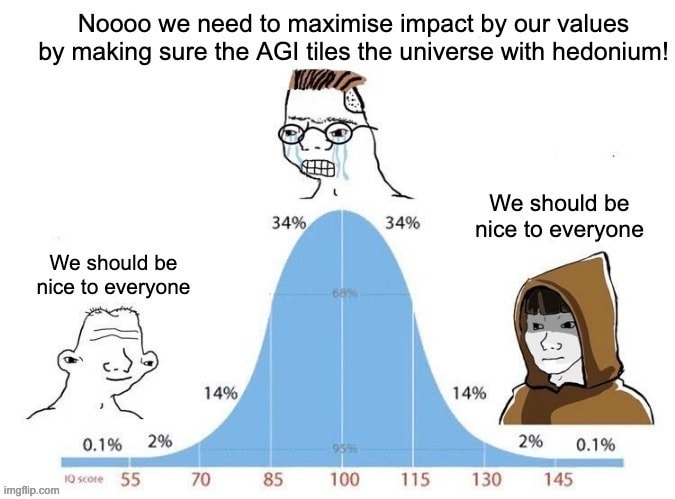My Understanding of Paul Christiano's Iterated Amplification AI Safety Research Agenda
Crossposted from the EA forum You can read this post as a google docs instead (IMO much better to read). This document aims to clarify the AI safety research agenda by Paul Christiano (IDA) and the arguments around how promising it is. Target audience: All levels of technical expertise. The less knowledge about IDA someone has, the more I expect them to benefit from the writeup. Writing policy: I aim to be as clear and concrete as possible and wrong rather than vague to identify disagreements and where I am mistaken. Things will err on the side of being too confidently expressed. Almost all footnotes are content and not references. Epistemic Status: The document is my best guess on IDA and might be wrong in important ways. I have not verified all of the content with somebody working on IDA. I spent ~4 weeks on this and have no prior background in ML, CS or AI safety. I wrote this document last summer (2019) as part of my summer research fellowship at FHI. I was planning to restructure, complete and correct it since but haven’t gotten to it for a year, so decided to just publish it as it is. The document has not been updated, i.e. nothing that has been released since September 2019 is incorporated into this document. Paul Christiano generously reviewed the first third to a half of this summary. I added his comments verbatim in the document. Apologies for the loss of readability due to this. This doesn’t imply he endorses any part of this document, especially the second half which he didn't get to review. Purpose of this document: Clarifying IDA IDA is Paul Christiano’s AI safety research agenda.[1] Christiano works at OpenAI which is one of the main actors in AI safety and IDA is by many considered the most complete[2] AI safety agenda. However, people who are not directly working on IDA are often confused about how exactly to understand the agenda. Clarifying IDA would make it more accessible for technical people to work on and easier to assess for nontechn
